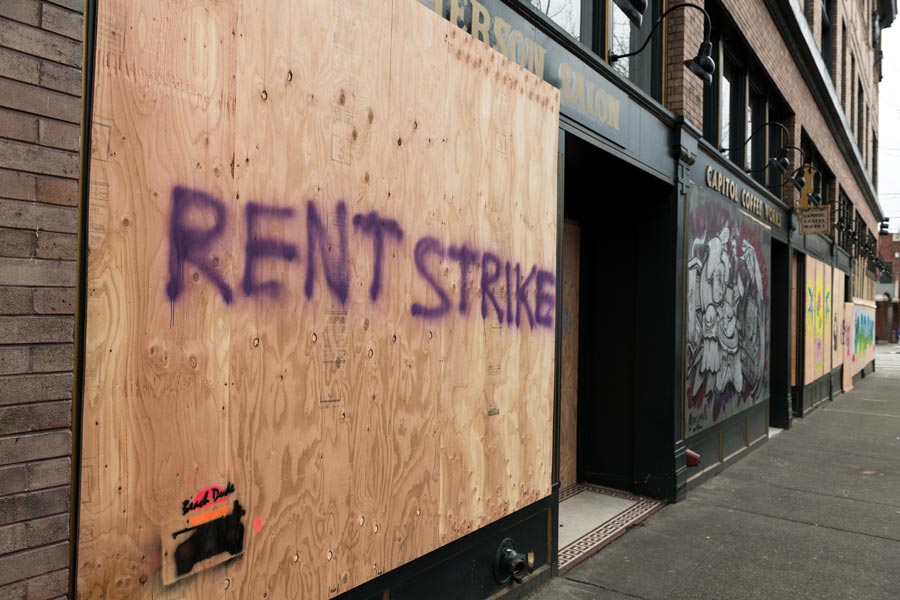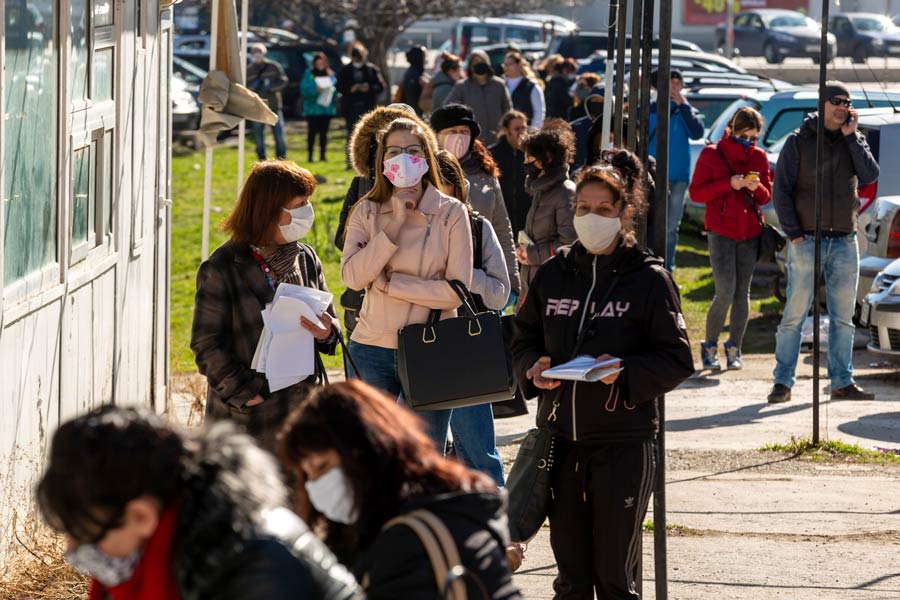The views expressed in our content reflect individual perspectives and do not represent the official views of the Baha'i Faith.
Nearly one-third of Americans did not pay their rent in April 2020. Not because they didn’t want to, but because they couldn’t afford to. It simply came down to a choice of food or lodging — and in this case, food won.
It’s a stark sign of how much American families are struggling economically during the COVID-19 pandemic, which has infected more than 1 million people in the United States and killed tens of thousands. Millions of Americans filed for unemployment benefits over the past month, so paying rent on May 1 is likely to be a struggle for even more people than it was in April.
“When people are unable to pay their rent, landlords, in turn, don’t have the funds to pay their mortgages, maintenance workers, insurance bills, and property taxes — which ultimately affects the ability of a city to provide services to people”
This same situation exists all over the globe, from the biggest nations to the smallest. But is this a personal problem, or a global one?
When people are unable to pay their rent, landlords, in turn, don’t have the funds to pay their mortgages, maintenance workers, insurance bills, and property taxes — which ultimately affects the ability of a city to provide services to people. Initially, issues like the inability to pay rent may seem like personal problems, but they’re also a reminder that what happens to one individual affects us all.

Indeed, one of the Baha’i Faith’s main beliefs is that we’re one human family. More than a century ago, Baha’ullah, the prophet and founder of the Baha’i Faith wrote that “the earth is but one country, and mankind its citizens.”
Personal problems are also societal or global problems. Personal problems require personal solutions, societal problems require societal solutions, and global problems require global solutions. But there is no global administration to help us solve our global problems.
Have you read “The Promise of World Peace?” It’s a letter written in 1985 to the “peoples of the world” by the Universal House of Justice, the international administrative body of the Baha’is. That year was designated by the United Nations as an International Year of Peace and so the Universal House of Justice laid out several prerequisites that need to happen for peace to be achieved. “Acceptance of the oneness of mankind is the first fundamental prerequisite for reorganization and administration of the world as one country, the home of humankind,” they wrote.
What does administering the world as one country look like? Some people are afraid of a global system of governance. They picture an authoritarian government, complete with jackbooted thugs marching down the street. Baha’is don’t want that either. “The Promise of World Peace” quotes Shoghi Effendi, the Guardian of the Baha’i Faith, who said this about the unity that peace — and global governance — requires:
“Far from aiming at the subversion of the existing foundations of society, it seeks to broaden its basis, to remold its institutions in a manner consonant with the needs of an ever-changing world. It can conflict with no legitimate allegiances, nor can it undermine essential loyalties. Its purpose is neither to stifle the flame of a sane and intelligent patriotism in men’s hearts, nor to abolish the system of national autonomy so essential if the evils of excessive centralization are to be avoided. It does not ignore, nor does it attempt to suppress, the diversity of ethnical origins, of climate, of history, of language and tradition, of thought and habit, that differentiate the peoples and nations of the world. It calls for a wider loyalty, for a larger aspiration than any that has animated the human race. It insists upon the subordination of national impulses and interests to the imperative claims of a unified world. It repudiates excessive centralization on one hand, and disclaims all attempts at uniformity on the other. Its watchword is unity in diversity.”

When this crisis passes — and it will — we will be able to look back on the lessons it has taught us. We know that we must change the way we do things, and we might start to talk about the fact that a global pandemic requires global management. Perhaps we will take the first serious, if faltering, steps towards a global government.
In a March 2020 message, the Universal House of Justice said: “Leaders, prominent thinkers, and commentators have begun to explore fundamental concepts and bold aspirations that, in recent times, have been largely absent from public discourse. At present these are but early glimmerings, yet they hold out the possibility that a moment of collective consciousness may be in view.”
While the immediate future is bad — the rent is still due on May 1 and millions of people are out of work — the way we solve this and other challenges will lead to a much brighter distant future. In 1941 in his book “The Promised Day is Come,” Shoghi Effendi wrote about the state of the world: “Its present state, indeed even its immediate future, is dark, distressingly dark. Its distant future, however, is radiant, gloriously radiant — so radiant that no eye can visualize it.” Indeed, there is hope for the future. As “The Promise of World Peace” tells us, “World peace is not only possible but inevitable.”

















Comments
Sign in or create an account
Continue with Facebookor